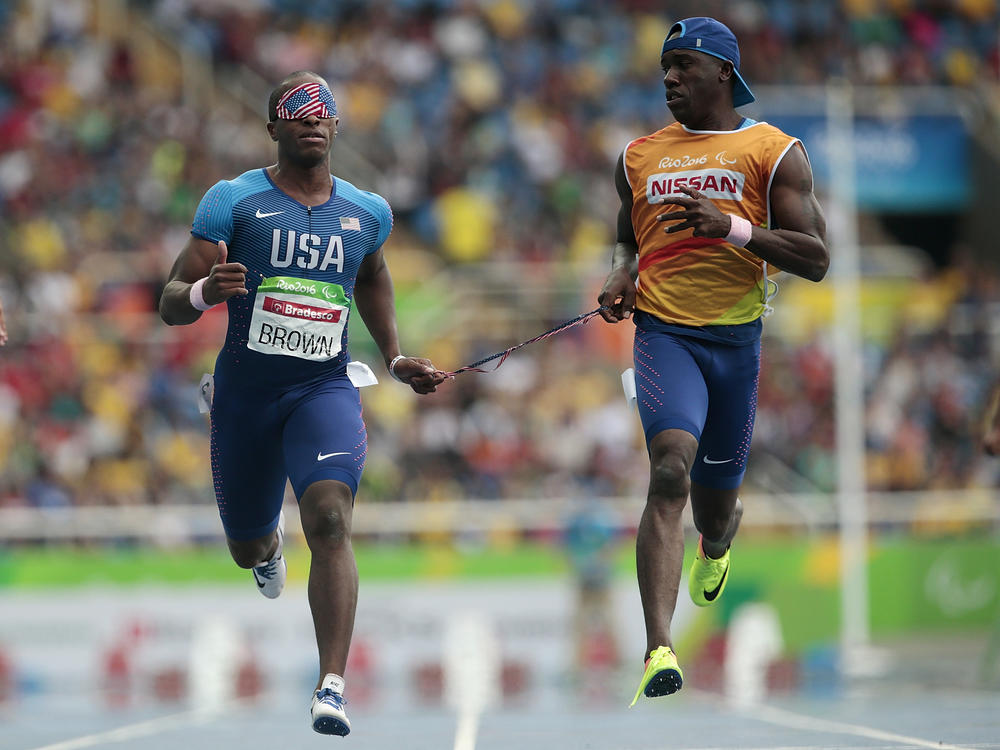Section Branding
Header Content
How Paralympian David Brown Overcame His Fears To Become The Fastest Blind Runner
Primary Content
David Brown is known as the world's fastest completely blind runner. He was diagnosed with Kawasaki disease at 15 months old, which led him to completely lose his sight by age 13.
Brown says was "living in fear for a number of years" — until he discovered his passion for running. After winning an essay contest and attending the 2008 games in Beijing, he knew he wanted to compete himself.
Paralympic runners train and compete alongside sighted guides. At the Rio Games in 2016, Brown and his partner Jerome Avery ran 10.99 in the men's 100-meter dash to take home the gold (that was the first year guides were awarded their own medals).
Now he's preparing to race in Tokyo with a new partner, Moray Steward.
The two spoke to host Robin Young of Here & Now from NPR and WBUR about what it's like to run together and what this competition means to them. Listen to their conversation here or read on for takeaways.
Brown made his way to running from another sport. He explains that he lost his left eye when he was 3, and lost vision in his right eye over time. He played basketball as a kid, but was increasingly getting injured because he couldn't see the ball coming. "I took the opportunity to run on the playground, and realized I had some speed there," he says.
He pursued his passion at the Missouri School for the Blind. Brown started at the school when he was 11, and it was there that he really started running track. That involved "hanging on to a clothesline-looking thing" to stay in a straight line, while pumping one arm and sprinting furiously.
He got to his first Paralympic games by writing about running. Brown was one of the 25 winners of an essay contest that got to attend the event in Beijing. He says he wrote about how he used sports to overcome obstacles, noting that as he grew up he struggled with depression and suicidal ideation.
It's crucial to be in sync with your running partner. Steward says he doesn't have to slow down when running with Brown, because he's fast. The two are tethered by a piece of fabric wrapped around their fingers, and must run and pump their arms in sync. A 10- or 11-second race doesn't require much speaking, Steward says, beyond the occasional cues.
It's also an honor, Brown says. He notes that Paralympic runners can't do what they do without guides like Steward, who could theoretically run solo but choose not to. He calls it "a great honor."
Brown isn't the only Paralympian to share their story with Here & Now. The program also spoke with two members of this year's six-person Refugee Paralympic Team: discus thrower Shahrad Nasajpour and swimmer Abbas Karimi. Read more about them here.
If you or someone you know may be considering suicide, contact the National Suicide Prevention Lifeline at 1-800-273-8255 (En Español: 1-888-628-9454; Deaf and Hard of Hearing: 1-800-799-4889) or the Crisis Text Line by texting HOME to 741741.
This story originally appeared on the Morning Edition live blog.
Copyright 2021 NPR. To see more, visit https://www.npr.org.

